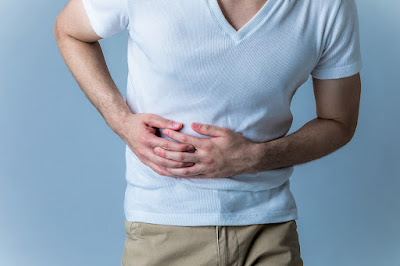Stomach pain can be caused by a variety of factors, including indigestion, gas, inflammation, infection, and other medical conditions. The treatment for stomach pain depends on the underlying cause, and it can range from home remedies to medical intervention.
In this article, we will discuss some of the most effective treatments for stomach pain.
- Over-the-counter medications:
If you have occasional stomach pain, over-the-counter medications can be helpful. Antacids, such as Tums or Rolaids, can help relieve indigestion and heartburn. Pepto-Bismol can also be helpful in treating upset stomach, nausea, and diarrhea. For gas and bloating, simethicone-based medications, such as Gas-X, can be useful.
- Probiotics:
Probiotics are live microorganisms that can provide numerous health benefits, including the prevention and treatment of stomach pain. Probiotics work by balancing the gut microbiome, which can improve digestion and reduce inflammation. You can find probiotics in fermented foods, such as yogurt, kefir, and sauerkraut, or you can take a pait dard ki medicine.
- Dietary Changes:
Certain foods can trigger stomach pain or worsen the symptoms. To reduce stomach pain, try to avoid or limit the consumption of:
- Spicy foods
- Fatty and fried foods
- Citrus fruits and juices
- Chocolate
- Caffeine
- Alcohol
- Carbonated drinks
- Dairy products
Instead, focus on consuming foods that are easy to digest, such as:
- Bananas
- Rice
- Applesauce
- Toast
- Boiled potatoes
- Chicken broth
- Lean meats
- Steamed vegetables
- Ginger:
Ginger has anti-inflammatory and analgesic properties, which can help alleviate stomach pain caused by inflammation or indigestion. You can consume ginger in many forms, including fresh ginger root, ginger tea, or ginger supplements. To make ginger tea, simply steep a few slices of fresh ginger in hot water for 10-15 minutes.
- Heat therapy:
Applying heat to the stomach can help reduce stomach pain caused by muscle tension or cramps. You can use a heating pad or a hot water bottle and apply it to the affected area for 15-20 minutes.
- Hydration:
Drinking plenty of fluids can help prevent and alleviate stomach pain. Water, herbal tea, and clear broths are good options. Avoid sugary drinks and caffeine, which can irritate the stomach lining.
- Prescription Medications:
If over-the-counter medications are not effective in treating your stomach pain, your doctor may prescribe stronger medications, such as:
- Proton pump inhibitors (PPIs) to reduce stomach acid production
- H2 blockers to decrease the amount of acid in the stomach
- Antibiotics to treat bacterial infections
- Antidepressants to reduce pain perception and improve mood
- Antispasmodics to relax the muscles in the digestive tract
- Surgery:
In some cases, surgery may be necessary to treat the underlying cause of stomach pain, such as an ulcer, a blockage in the intestines, or a hernia.
- Alternative therapies:
Alternative therapies, such as acupuncture, acupressure, and herbal medicine, may also be helpful in treating stomach pain. However, more research is needed to determine their effectiveness.
In conclusion, stomach pain can be caused by various factors, and the treatment options depend on the underlying cause. Over-the-counter medications, dietary changes, probiotics, ginger, heat therapy, hydration, prescription medications, surgery, and alternative therapies can all be helpful unani medicine for gastric problem. However, it is important to consult a doctor if the symptoms persist or worsen.







